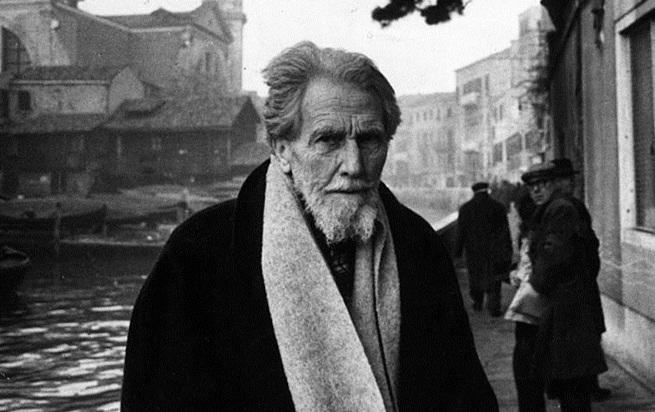A matter of meaning
18 Aug 2020 09:47:09

Ezra Pound
By Vijay Phanshikar ;
“Great literature is simply language charged with meaning to the utmost possible degree”.
-- Ezra Pound
Prose
THIS adds one more definition of what constitutes great literature -- attempted by one of literature’s greatest exponents. None of the thirteen words is difficult for even a child of three -- but every word is complex enough to make even adults think deeply on the subject. Of course, the key word here is ‘meaning’. And what does it mean? -- one may ask. The answer to this simple question will always be the most complex by any definition. For, it is no mean a task to extract meaning out of ‘meaning’. Meaning, actually, is the core of language -- not of words.
Of course, words carry ‘meaning’ on their shoulders. When used meaningfully by those who understand, the words in fine juxtaposition become agents of good -- or great -- literature. The art -- of creating literature, thus, is actually the science of making the words dance to the meaning in the writer’s mind. So many potential meanings do the words offer, in so many shades, in so many stated and even unstated nuances! To pick up the most suited meaning and marshal it in an expression -- not sentence, so to say -- is where great literature is born. When the most suitable nuance of the word’s meaning is commandeered, expression becomes meaningful to the utmost possible degree, as Ezra Pound says.
This utmost possible degree, however, is an ephemeral pursuit, leading almost always to an inner struggle the writer has to endure through its torture of choice. But in the end, the torture, the struggle, the vagary is worth itself. Vocabulary is often cited as the writer’s greatest tool. This is only half truth, to say the least. For, if vocabulary were that, then every dictionary that contains most words in a language, would have got termed as an epic. Joke apart, what actually matters, thus, is the ability to marshal the right nuance of a word’s meaning and present it to form an expression.
Very rarely do we realise the complexity of this process, very rarely do we realise that what may appear to be the best choice of the nuance of a meaning, may actually not serve the purpose in the end. Ezra Pound does not talk of another tool that makes words meaningful. In that short and crisp expression, he does not mention ‘emotion’ as another facet of expression -- without which no communion is possible. Yet, when he talks of meaning, he presupposes that meaning of a word cannot reach its full flow without the appropriate tinge of the right emotion.
That actually charges language with meaning to the utmost possible degree. When we talk of great literature -- in any language -- we often use a subjective element as a decider. A certain literature may be termed as great in context of the time in which it came into existence, the social or any other context. Reinterpreted events of history also add greatness to a literature produced earlier, while expectations of future add another flavour helping us term literature as great. Leaving aside those complexities, what Ezra Pound offers appears to be the best and simplest definition of great literature.